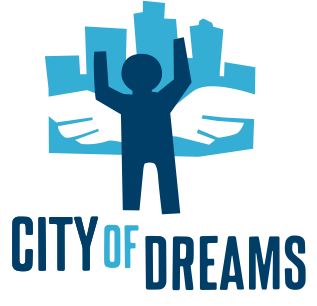More as Mentors: Tips for Building Relationships with Underserved BIPOC Youth
We have a responsibility as an organization to provide for the youth of the Bayview District. Our mentorship program now holds weight within the San Francisco community, even reaching across the Bay by some of our committed mentors. As we grow into the lives and households of more Bayview families, we have a responsibility to ensure the mentorship their children are receiving is meaningful. January is National Mentorship Month and a great new-year opportunity to shift our efforts among our programming. In 2023, we are aiming to understand why mentors choose us, how to prepare them for a potential match, and how to ensure the relationship becomes fruitful for both parties.
But first, we are aiming to break past the surface of “friendship” mentoring.
A study of 2,000 mentors from 30 youth organizations across the United States found that mentors often engaged with their mentees in “non-specific” ways. When asked how they typically spent time together, their responses were broad and repeated the same general ideas–going out to eat, going to events, and creative activities. This is leaning on the side of “Friendship” mentoring, a habit among many mentor organizations to lack structure and resources for the mentors to achieve more for their mentees. Not to say that these types of activities are not important to relationship cultivation and the overall progression of the adolescent; because ultimately, “A good relationship is a necessary ingredient of all successful mentoring…” We want to start asking, Are we taking on too broad of an approach?
When the work is meant to be preventative, informal activities can lead to redundancy and do less for their mental health than efforts can elsewhere. Is your friendly relationship alone what will make a difference in the child’s mental health and/or unstable environment? The point is focused work. Mentorship for disadvantaged youth should walk the line between informal activities to maintain the friendliness of the relationship and evidence-based activities meant to stimulate their growth and healing. What makes mentorship different from the teachers and leaders in your mentee's everyday life is this balance. As a mentor, you have an opportunity to cultivate a relationship unique to the child’s life. We want to ensure that our mentors have the resources to shift into a model that focuses on the youth’s individual challenges. As of now, one of the evidence-based approaches is ensuring our mentors understand the socioeconomic gap between them and their mentee, and acknowledge the challenges as different than their own.
Renee Spencer, the Human Behavior Department Chair of Boston University, studied the misperceptions between mentors and mentees. She cited that this gap beneath the relationship is the main reason mentor relationships tend to end, as mentors have felt unequipped for the conditions their mentees face. Renee noted a disconnect between mentor and mentee in these situations. Regardless of the friendliness of their relationship, if there is a lack of appreciation for the challenges of the child (missed hang-outs, lack of transportation; what can seem to be a lack of organization or care on the family’s part, etc.) an erosion of understanding and genuine connection can become the relationship’s downfall. The Role of Risk study exhibits this disconnect similarly:
Only 12% of mentors in the study experienced poverty themselves
⅓ of these mentors had previous experiences working with specifically youth in poverty beforehand
Only 29% of mentors reported that their mentee faced poverty, despite the reality being a majority of the mentees
We want our mentors to understand the many faces of poverty and how this can impact their relationship. We recommend keeping these important notions in mind:
Challenge your expectations
Avoid oversimplified attitudes like “If I did it, you can too!”
Avoid judgment
Learning about the child’s community, culture, and embracing it can change the dynamic of your friendship
Inviting parts of your life into theirs can expand their worldly perception and deepen your connection
Develop a relationship with the mentees family. Knowing their support system and vice versa can expand your ability to do more for the child
Remember that BIPOC youth are not a “special project” and not all of them are necessarily at-risk. Remaining critically conscious of social and economic boundaries is essential for a genuine connection.
Ultimately, mentors are a scarce resource as it is. The circumstances of our youth and the problem of scarcity reveals the need for well allocated mentors to mentees. So far, our mentors have seen real results, including:
Collaborating on college applications, job applications, interviews, internships
Exercising or getting active together
Sharing personal experiences of hardship and happiness that would not always make it back to the other adults in their lives
Dramatic change to school attendance, from truancy to perfect attendance.
Higher report cards to bring home
Decade-long mentor-mentee relationships
The benefits can be deep, healing, and enriching to the point of impact throughout other parts of both of your lives. You build trust and allegiance; and your commitment is an evidence-based practice waiting to be explored for the youth.

